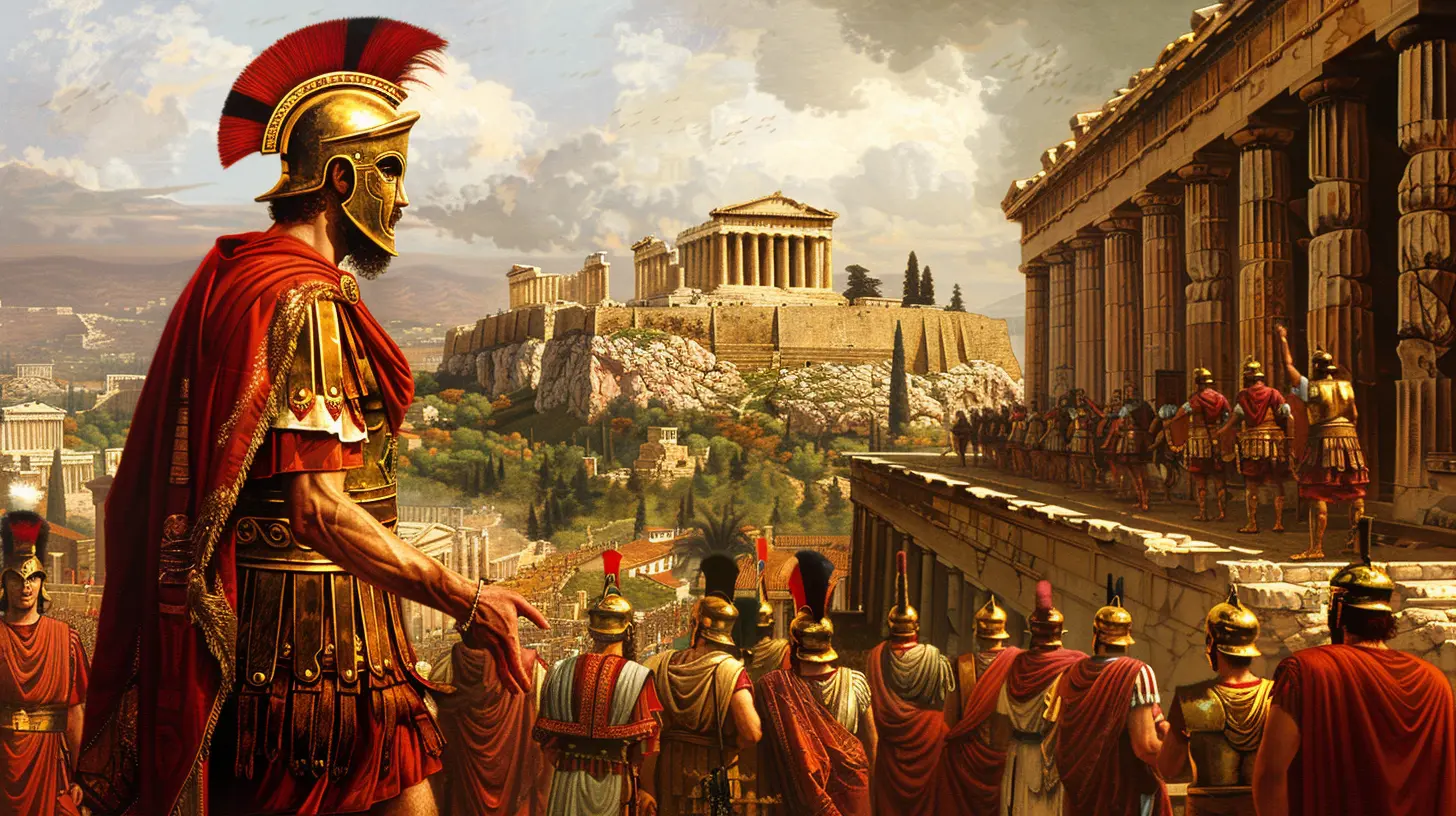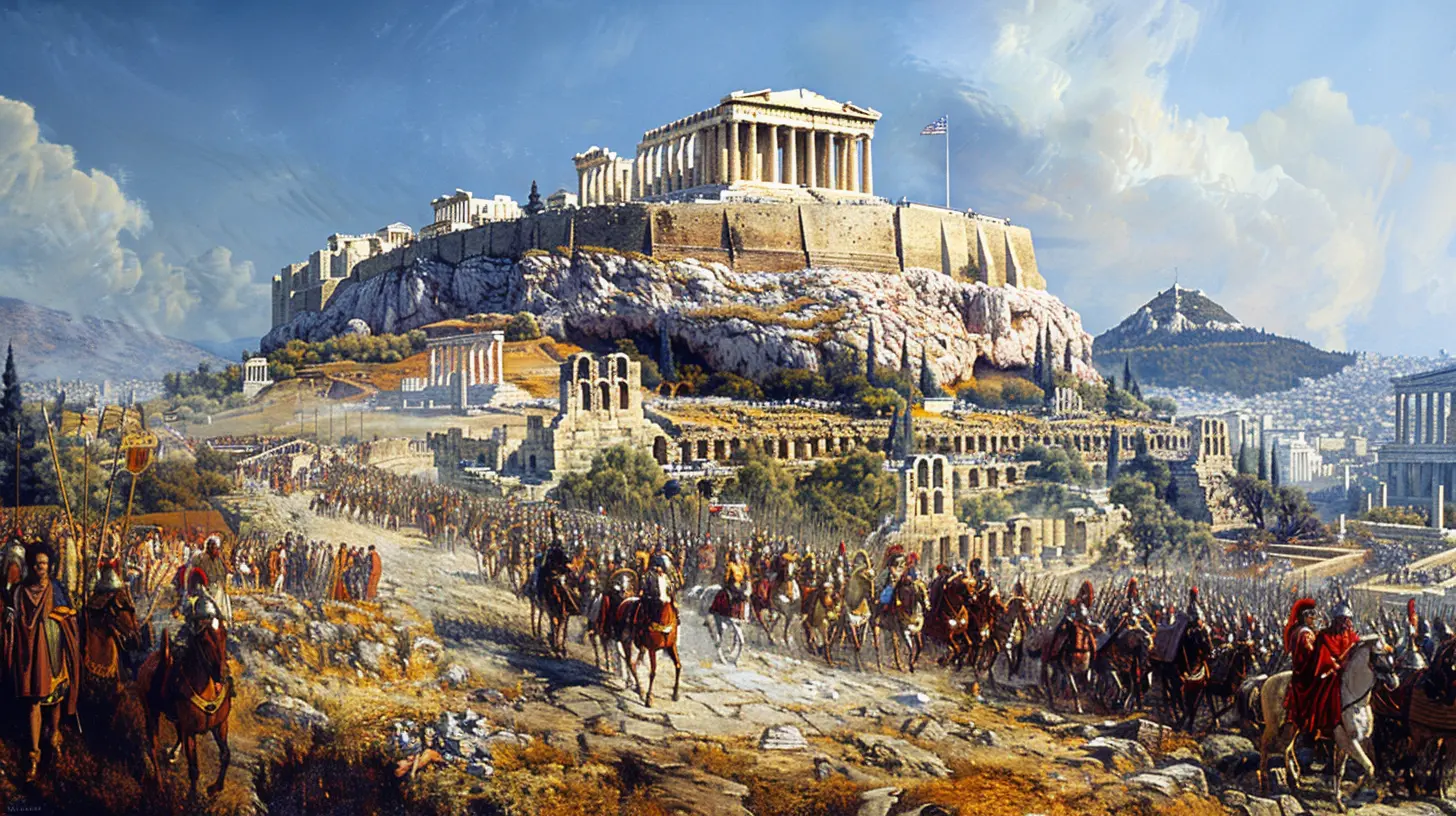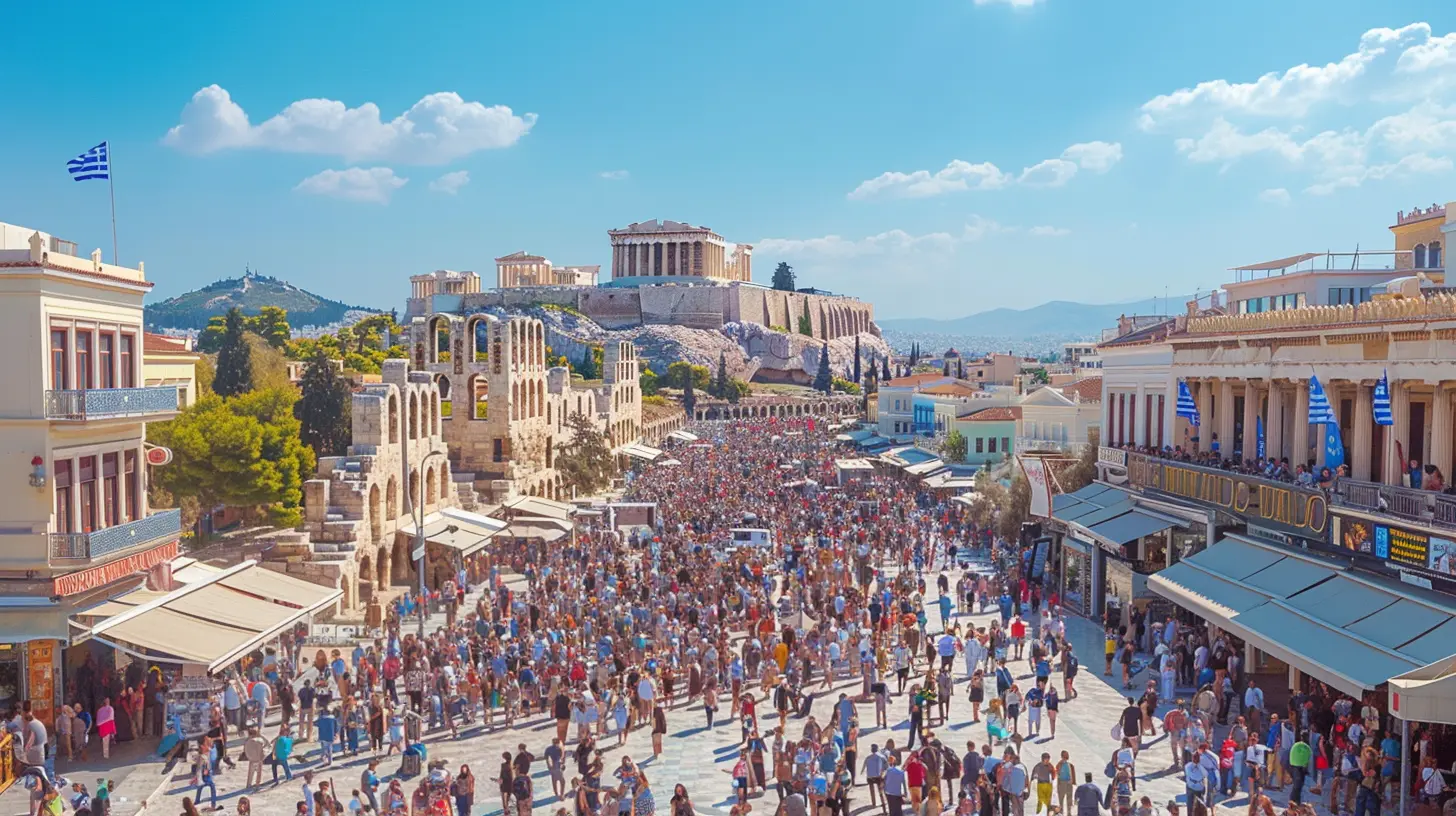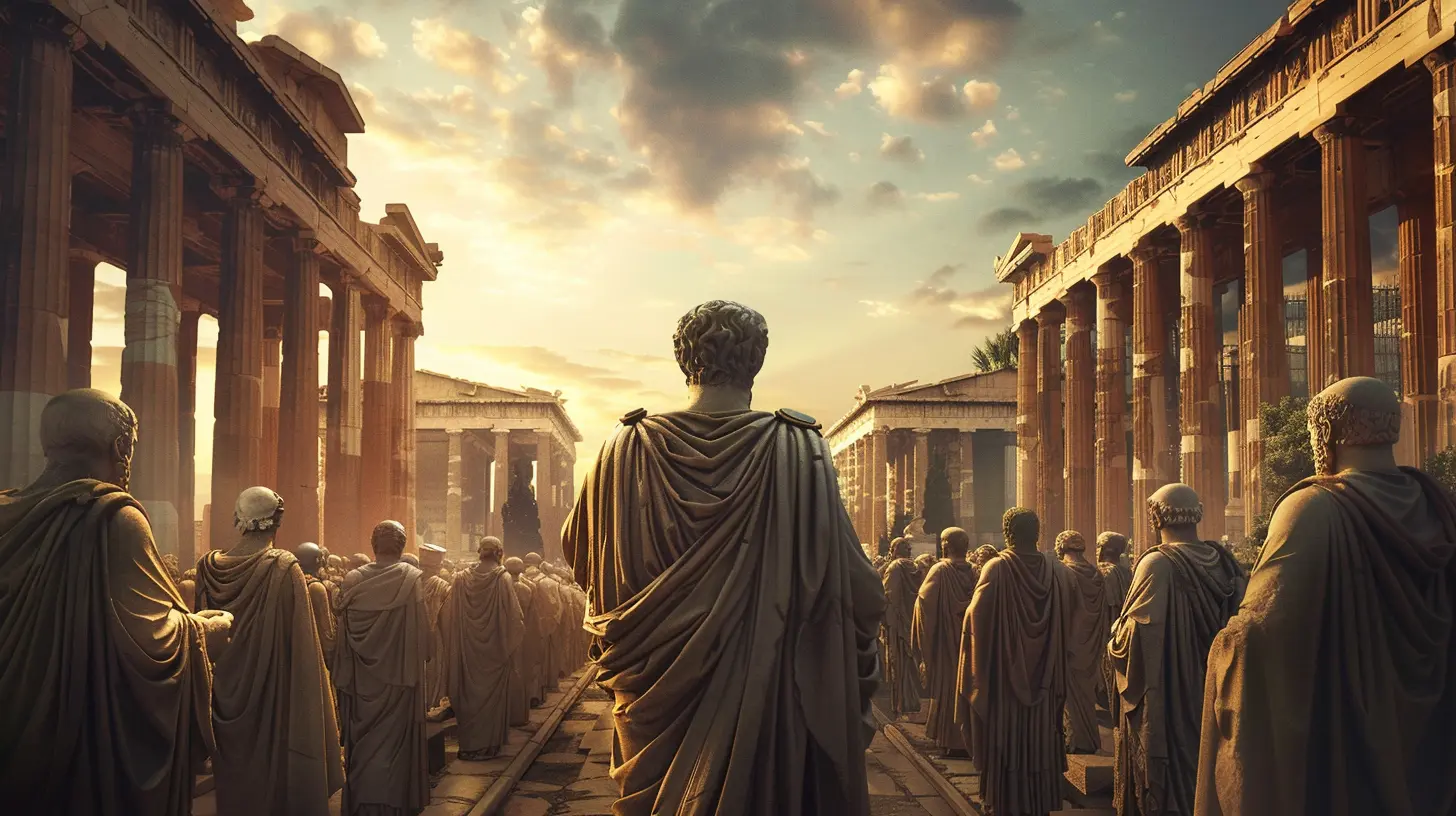The History of Democracy: From Athens to Today
18 November 2025
What comes to your mind when you hear the word “democracy”? Most of us immediately think about voting, freedom of speech, and having a say in how our countries are run. But have you ever stopped to wonder where it all started? How did we go from ancient city-states shouting in public squares to modern elections and parliamentary debates?
Well, that’s exactly what we’re diving into today—the fascinating journey of democracy from its early roots in ancient Athens to its ever-evolving shape in today’s world. Buckle up, we’re heading on a time-traveling adventure through the twists and turns of democratic history!
What Is Democracy, Anyway?
Before we stroll down memory lane, let's quickly define what we’re talking about. The word “democracy” comes from the Greek words demos (meaning people) and kratos (meaning power or rule). So, yep, it literally means “rule by the people.”But here’s the thing—democracy isn't a one-size-fits-all kind of deal. It’s more like a buffet. You’ve got direct democracy, representative democracy, liberal democracy, and so many other flavors. The core idea, though, remains the same: people get to participate in how they’re governed.
Ancient Athens: The Birthplace of Democracy
Alright, let’s rewind all the way back to the 5th century BCE in Athens, Greece. Imagine the scene—citizens gathered in a public space called the Pnyx, passionately debating laws and policies. This wasn’t politics as usual; this was the birth of direct democracy.Athens didn’t have politicians in the way we understand them today. Instead, citizens—adult males who weren’t slaves—participated directly in decision-making. They didn’t elect people to make decisions for them; they did it themselves.
Pretty wild, right?
But of course, this system had its flaws. Women, slaves, and foreigners were left out. So while it was revolutionary, it wasn’t exactly inclusive.
The Roman Republic: A New Spin on Democracy
Fast forward a bit, and the Romans come into the picture with their own twist—the Roman Republic. It wasn’t a full-blown democracy like Athens, but it did include elements like elected officials (magistrates) and a Senate.This is where the idea of representative democracy started to take shape. Not everyone was voting directly on every issue, but they chose people to do it for them. Sound familiar?
Plus, Roman law and political philosophy had a huge influence on Western democracy centuries later. They kind of planted the seeds that would grow much, much later.
The Long Pause: Democracy Takes a Back Seat
After the fall of the Roman Empire, democracy sort of… disappeared. For nearly a thousand years, monarchies and feudal systems ruled the day across Europe. Kings, queens, and nobles held most of the power, and the average person had next to no say.But democracy wasn’t dead—it was just sleeping. And in the background, ideas were brewing that would bring it roaring back to life.
Enlightenment Thinkers: Reigniting the Flame
Enter the Enlightenment in the 17th and 18th centuries. Thinkers like John Locke, Jean-Jacques Rousseau, and Montesquieu started doing something radical—they argued that people had natural rights, like life, liberty, and property, and that governments should protect these rights.Oh, and they also believed that if a government failed to do that, the people had the right to overthrow it. Bold stuff for the time.
These ideas became the ideological fuel for democratic revolutions around the world. And trust me, once the fire started, it spread fast.
The American and French Revolutions: Democracy Explodes
The late 1700s was like a political fireworks show. First up, the United States declared independence in 1776. The founders of the U.S. took Enlightenment ideas and baked them right into the Constitution, creating a representative democracy where citizens could elect leaders.Just a few years later, France followed suit with its own revolution in 1789. The French Revolution was messy—think guillotines and chaos—but out of that turmoil came a call for liberty, equality, and fraternity.
Democracy was no longer just an ancient Greek experiment—it was becoming a modern movement.
19th Century: The Slow March Toward Inclusion
Here’s where things get interesting. Democracy was catching on, but it wasn’t accessible to everyone. For a long time, voting was limited to wealthy land-owning men.But the 19th century saw a growing push for universal suffrage. Bit by bit, different countries expanded voting rights—first to all men, then to women (finally!).
The Women's Suffrage Movement, the push for civil rights, and broader labor movements all helped drag democracy out of the past and into a more inclusive future.
20th Century: Democracy vs. Dictatorship
The 20th century was a major battlefield for political ideologies. On one side, you had democracy fighting for survival. On the other? Fascism and communism aimed to take its place.World War I and World War II showed the dangers of authoritarian regimes gone wild. But afterward, democracy made a strong comeback, especially in Europe thanks to the formation of the European Union and the rebirth of democratic institutions.
Meanwhile, the Cold War was practically a global debate between democracy (mainly led by the U.S. and its allies) and communist ideologies (led by the USSR). Ultimately, with the fall of the Berlin Wall and the collapse of the Soviet Union, democracy appeared to claim the win.
The Digital Age: Democracy Goes Online
And now we’re in the 21st century, where democracy looks nothing like its ancient roots.Thanks to the internet and social media, people can now share opinions, organize protests, and hold governments accountable like never before. Think about Arab Spring, online petitions, or how young folks on TikTok are shaping political conversations.
But with great power comes great… confusion? Yeah. Misinformation, fake news, and digital surveillance are new challenges to democracy. It’s like we’ve opened Pandora’s box—and now we have to figure out how to handle what came out.
Modern Challenges for Democracy
Let’s be real—democracy isn’t perfect. In fact, it’s facing some pretty serious challenges today:- Misinformation: People can't make informed choices if they’re being misled.
- Political Polarization: Societies are becoming more divided, making compromise harder.
- Voter Apathy: Many citizens just don’t feel like their voices matter anymore.
- Threats to Free Press: A democracy without a free press is like a car with no engine.
But here’s the silver lining: democracies can adapt. They’re living systems that evolve, just like we do.
Why Democracy Still Matters
So, with all this history and all these challenges, is democracy still worth it?Absolutely. It gives people a voice. It allows peaceful transitions of power. It protects freedoms we often take for granted, like speech and religion. And yeah, it’s messy and frustrating and slow sometimes—but it’s still one of the best tools we have for building fairer societies.
Think of democracy like a gym membership. You only get results if you actually show up and put in the work. Voting, engaging in civil discussion, staying informed—that’s the real exercise.
Wrapping It All Up
From the passionate debates of ancient Athens to the digital conversations happening on Twitter today, democracy has come a long way. It’s taken detours, faced setbacks, and adapted with the times. But the core idea—that people should have a say in their own governance—has remained strong.And now, it’s up to us. Will we let democracy keep growing and improving? Or will we let it decay under pressure and neglect?
The choice, as always, is ours.
Quick Timeline Snapshot: Democracy Through The Ages
| Time Period | Key Event ||-------------|-----------|
| 5th Century BCE | Direct democracy in ancient Athens |
| 509 BCE | Roman Republic established |
| 1215 CE | Magna Carta limits power of the king in England |
| 1776 | American Declaration of Independence |
| 1789 | French Revolution begins |
| 19th Century | Voting rights expand, labor and rights movements rise |
| 1919–1945 | Democracy challenged by fascism and war |
| 1945–1991 | Cold War showcases ideological battle |
| 1990s–Today | Spread of democracy in post-Soviet states and digital age |
Final Thoughts
Understanding democracy's history helps us appreciate what we have—and what we risk losing if we don’t protect it. It's not just a system; it's a commitment, a conversation, and a constant work in progress.So let’s keep the dialogue going. Let’s vote, speak up, stay informed, and keep pushing for a world where everyone really does get a say.
all images in this post were generated using AI tools
Category:
History LessonsAuthor:

Zoe McKay
Discussion
rate this article
1 comments
Aris Black
Great overview of democracy's evolution! Truly highlights its significance throughout history.
November 18, 2025 at 5:34 AM

Zoe McKay
Thank you! I'm glad you found the overview insightful. Democracy's evolution is indeed fascinating!


